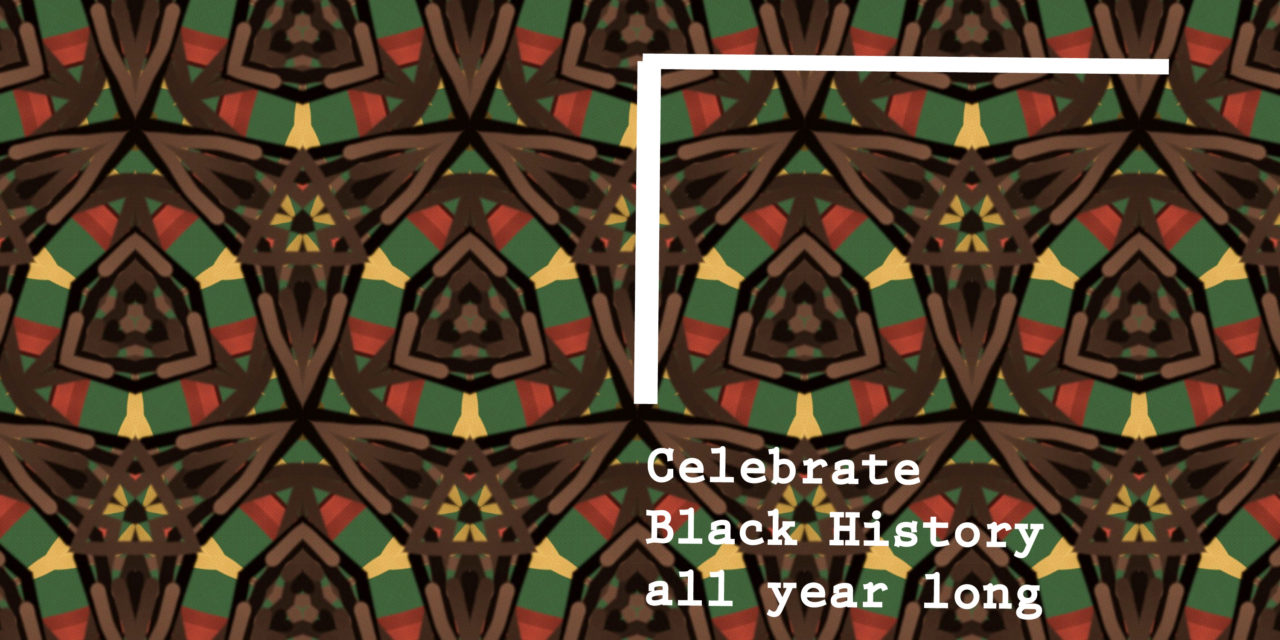Part of the Diversity & Inclusion Blog Post Series
As a first-generation immigrant from Panama, Black History Month was hard to understand. Why was it relegated to the shortest and coldest month of the year? For instance, at home, we “celebrated” black history all the time! Every day, every month, every year! My parents and grandparents were active in their communities and everyone around me was doing amazing things. All my life, I heard stories about my paternal great grandmother who was an entrepreneur in Panama and my maternal great grandfather who was a landowner and an expert blacksmith on the Panama Canal. My dad owned a flourishing business and was a respected member of society. My mom, aunts and uncles all had great jobs and were at the top of their fields of endeavor. So, what was I missing? The posters and books in school were just an extension of what I did at home because my dad and grandfather were voracious and avid readers. They encouraged me to read and presented me with books all the time. Autobiographies were my favorite and so, appreciating my blackness, our shared greatness and black history came naturally. There was no need to be reminded of the obvious!
However, college changed my perspective. My Honors thesis (dedicated to my beautiful and supportive Mother) focused on the differences between slavery in the US and the Caribbean. My research made me realize, slavery and the subsequent periods of “Reconstruction” were extremely discriminatory. I also realized that prejudicial practices in the United States allowed the black American story to be trivialized and their contributions to science, technology, engineering, the arts, and government, minimalized, or all but eliminated.
While writing my master’s thesis and trying to explain these practices to my committee, I came across a quote from Carolyn Jones in a book by Dr. Marilyn Kern-Foxworth. I have alluded to it in part many times over the past 20 years.
Someone hands you a picture of your high-school class. The first thing you do is look for your friends to see how you look compared to them. Then you settle back and enjoy the picture as a whole. If you missed school that day and you’re not in the picture, you’d feel bad. But if someone arbitrarily cropped you out, you’d probably be angry. That’s how many blacks feel about much of the advertising presented about them.
And that is when I had my aha moment! Black History Month is about filling voids. Omissions and excisions of achievements and contributions from black people in the United States have led to the perception that people of color did not contribute to this great nation. Once I finished law school, my perspective shifted again. I became the “first” to do SO many things in my community and my family. And yet, none seemed either earth shattering or particularly difficult.
When my children came along, I found myself explaining repeatedly why I was so involved and eager to take part in so many activities because it was important for them to SEE themselves in these places. They had to KNOW it was “possible”. Even if I was not really the first to do certain things, it often seemed I was because of the concerted effort to obscure and erase black achievement in America. Regrettably, there has been no overt systemic effort to either celebrate or glorify these achievements for the greater good, though Black History Month helps by focusing attention.
Thankfully, I was empowered by the strength of my family, especially my mother, to take chances and explore the various opportunities out there. I also decided that I had to put myself in places where my voice would be heard and be impactful for people of color. Places, where people of color have traditionally been absent, or otherwise suppressed.
Today, I sit on the Board Development Committee for Girl Scouts of Connecticut because I love Girl Scouts, but also because I wanted to help drive the organization to find and seat people of color on its Board of Directors. I was also asked to sit on the Diversity, Equity and Inclusion Committee for Girl Scouts of Connecticut to bring a voice to the table and assist the organization with recruiting and retaining girls of color, LGBTQ+, and girls with disabilities. I was recently asked to chair the Diversity and Inclusion committee for the Connecticut Chapter of the American Immigration Lawyers Association to help lawyers develop ways to deal with different perspectives and to see where their biases might prevent them from being the best advocates they can be. I am also a member of the First and Finest sorority for black women, Alpha Kappa Alpha Sorority, Inc., where I hone my leadership skills and serve my community with pride.
I am a first-generation immigrant and proud American, who knows that the story of a black, female lawyer while not groundbreaking, could still be impactful and inspiring to many who choose to follow. I also realize that sharing my story is important because, without the conversation or the expectation that achievement is possible, posterity will be hard pressed to find positive role models.
I stand on the shoulders of giants and today and every day, we should celebrate our achievements.
And, in case you want to read my thesis, please click through this link.
***
This page contains more information about the AILA Diversity and Inclusion Committee and opportunities to get involved and engage.







